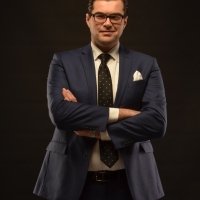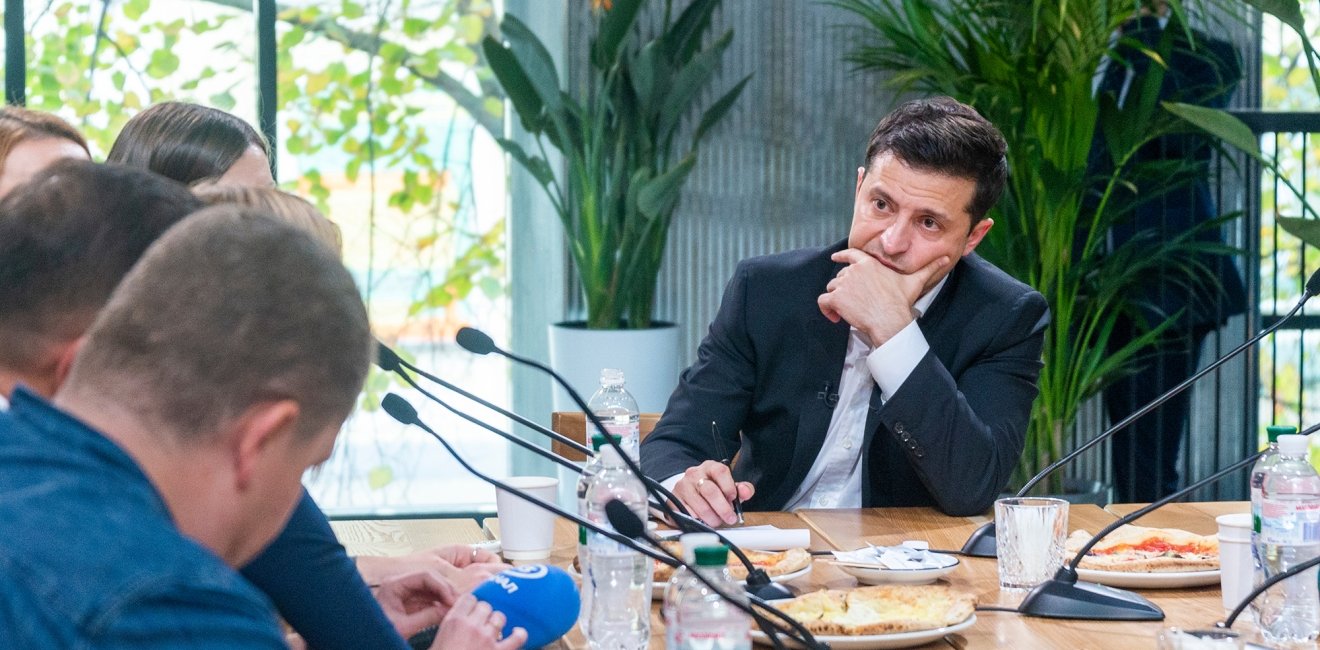
A blog of the Kennan Institute
BY ANDRIAN PROKIP AND MYKHAILO MINAKOV
President Volodymyr Zelensky achieved a landslide victory in the presidential elections of 2019 in part by hammering on the weaknesses of his major rival, then-president Petro Poroshenko. One of Poroshenko’s biggest alleged faults, which Zelensky returned to frequently during the presidential debates, was his inclination to appoint his cronies to key government positions. Voters agreed, and delivered the win to Zelensky. Zelensky dissolved parliament within hours after being sworn in (finding a legal pretext to do so), in anticipation of getting a majority in the Rada—something he achieved. But the president then faced a difficult moment of truth: Who would become the key players on his team—professionals or friends, statesmen or former business partners?
The abrupt dismissal of the Rada, and the subsequent revolving door in key administrative posts, introduced an unexpected difficulty for Zelensky. A political novice himself, he was elected on the wave of voters’ distrust of “old professionals” in politics and public administration. Ukrainians wanted big changes and new faces. Thus Zelensky’s close associates came from media circles and show business. His choices for top positions in the new government thus began to bend in a traditional direction.
A significant number of the top officials appointed to the new government did not have political experience but met the important qualification: they enjoyed the trust of the president, mainly based on personal ties and friendship. For example, Ivan Bakanov, Zelensky’s childhood friend and executive of his media business (Kvartal 95), was appointed chief of the Security Service of Ukraine. Serhiy Shefir, a former scriptwriter and producer of Kvartal 95, became chief assistant to the president. Serhiy Trofimov, former executive producer at Kvartal 95, and Yuriy Kostyuk, a former screenwriter, became deputy chiefs of the presidential office. Kvartal 95 managers were also appointed to the national TV and radio broadcasting regulator and the Anti-Monopoly Committee.
Appointing trusted people to the executive suite is nothing new. It is common in some older democracies, especially presidential republics. But in those forms of government, it typically is done with strong oversight from the legislature, coupled with an approval requirement. In Ukraine, the Rada and the cabinet, as well as other oligarchic clans, were able to somewhat counterbalance Poroshenko’s entourage’s authority. But this balance of powers disappeared with the 2019 parliamentary elections, which put Zelensky’s party in charge of everything.
As of September 2020, the Servant of the People party has 247 votes (out of 450) in parliament, which gives it a governing majority. Moreover, the core of the party is also under the control of a dozen trusted partners of President Zelensky. The largest part of the ruling faction and of the two cabinets (so far) have lacked appropriate political or public sector experience when they took up their positions, a deficit that contributed to numerous mistakes on their part, some public scandals, and at least one change of cabinet.
Andrii Bohdan, Zelensky’s ex-chief of staff, in a recent interview said that the president appoints top officials based on personal sympathy. And it looks as though the bitter mistakes of the past sixteen months have not persuaded President Zelensky to alter how he chooses candidates for government positions. According to Bohdan, candidates for the upcoming local elections were selected based on the same “sympathy” factor. This is why, for example, the Servant of the People party nominated Oleh Filimov, once a popular comedian, to run for mayor of Odesa and Viktor Hevko, an actor and stand-up performer, to run for mayor of Ternopil.
To be fair, it is not only Zelensky’s team that promotes media and showpeople into positions of power. The Holos (Voice) opposition political party, established by the well-known singer Sviatoslav Vakarchuk, nominated Serhii Prytula, comedian and showman, to run for mayor of Kyiv. Thus show business seems to be supplying the cadres for political and administrative posts. It is a strange turn of events.
In fairness, Zelensky’s choices are somewhat reduced by the fact that professionals—established politicians, public administrators, lawyers and economists—are not rushing to join the ruling parties and enter high public office, even when invited to do so. That complicates the picture. Experienced hands, aware of the selection criterion and wary of the seemingly endless reshuffling of key personnel around the president, are not confident they would last long in a government position or be able to make a difference. Worse, many professionals who could bring greater effectiveness to Ukraine’s government in these difficult times often say that working for the government would undermine their reputation.
Thus the deficit among the ranks of likely contenders for positions in government has become a serious obstacle to the current administration. To fill the void, the ruling party has started hiring government professionals with tarnished reputations, including people who were associated with the Yanukovych clan or had a record of plagiarizing their Ph.D. theses.
The current government has an enormous problem with the cadres. Why does this matter? Continuing to hew to inappropriate selection criteria for key government positions in Ukraine reduces the quality of decision-making and policymaking, the efficacy of governance, nonpartisan law-making and judicial independence, national security, and political stability. Those are major drags on Ukraine’s effort to define its national identity and its aspiration to join its western European neighbors. If the problem is not tackled properly and fast, it also stands to shatter President Zelensky’s once enormous popular support.
The opinions expressed in this article are those solely of the author and do not reflect the views of the Kennan Institute.
Authors

Director, Energy Program, Ukrainian Institute for the Future


Kennan Institute
The Kennan Institute is the premier US center for advanced research on Eurasia and the oldest and largest regional program at the Woodrow Wilson International Center for Scholars. The Kennan Institute is committed to improving American understanding of Russia, Ukraine, Central Asia, the South Caucasus, and the surrounding region through research and exchange. Read more

Explore More in Focus Ukraine
Browse Focus Ukraine
Talking to the Dead to Heal the Living

Ukrainian Issue in Polish Elections


